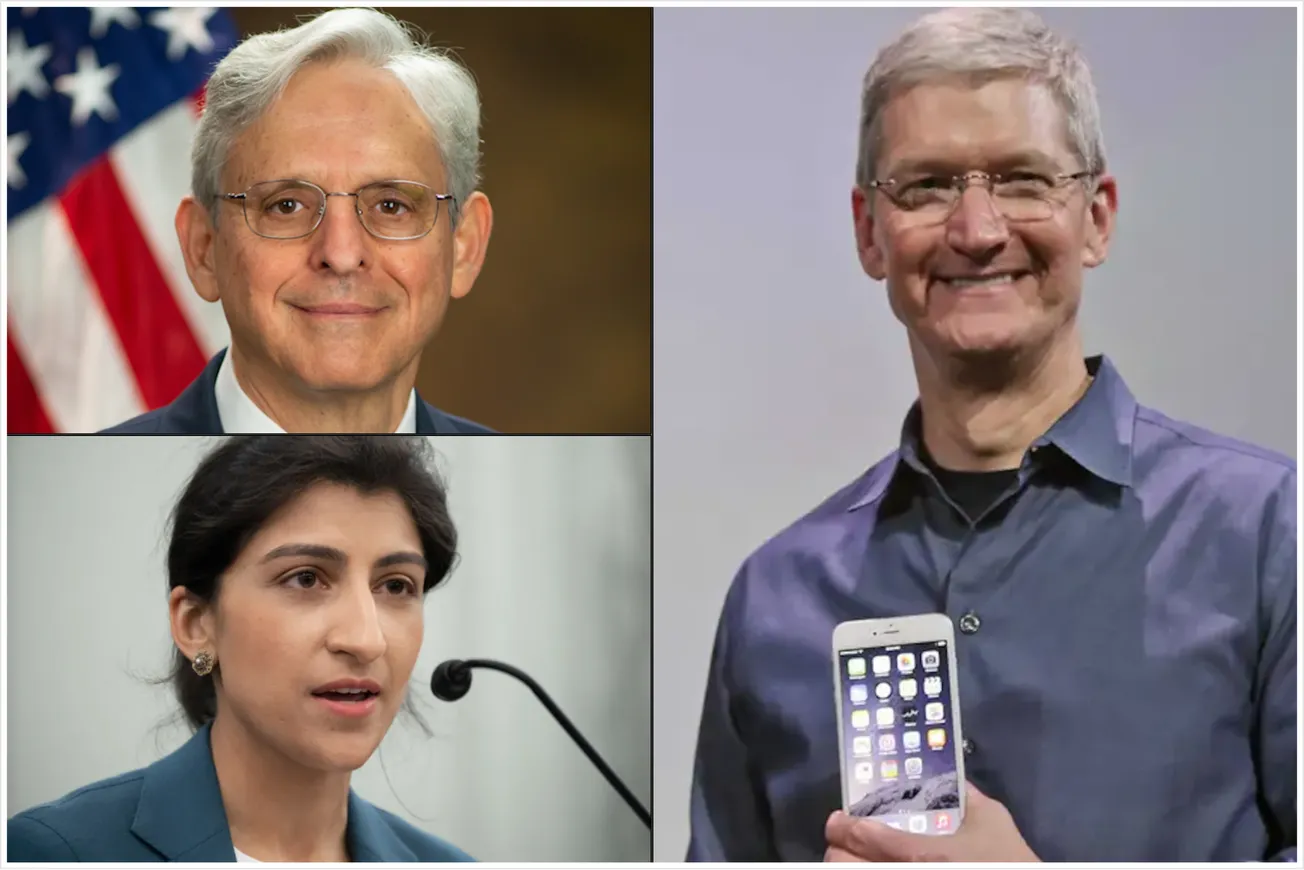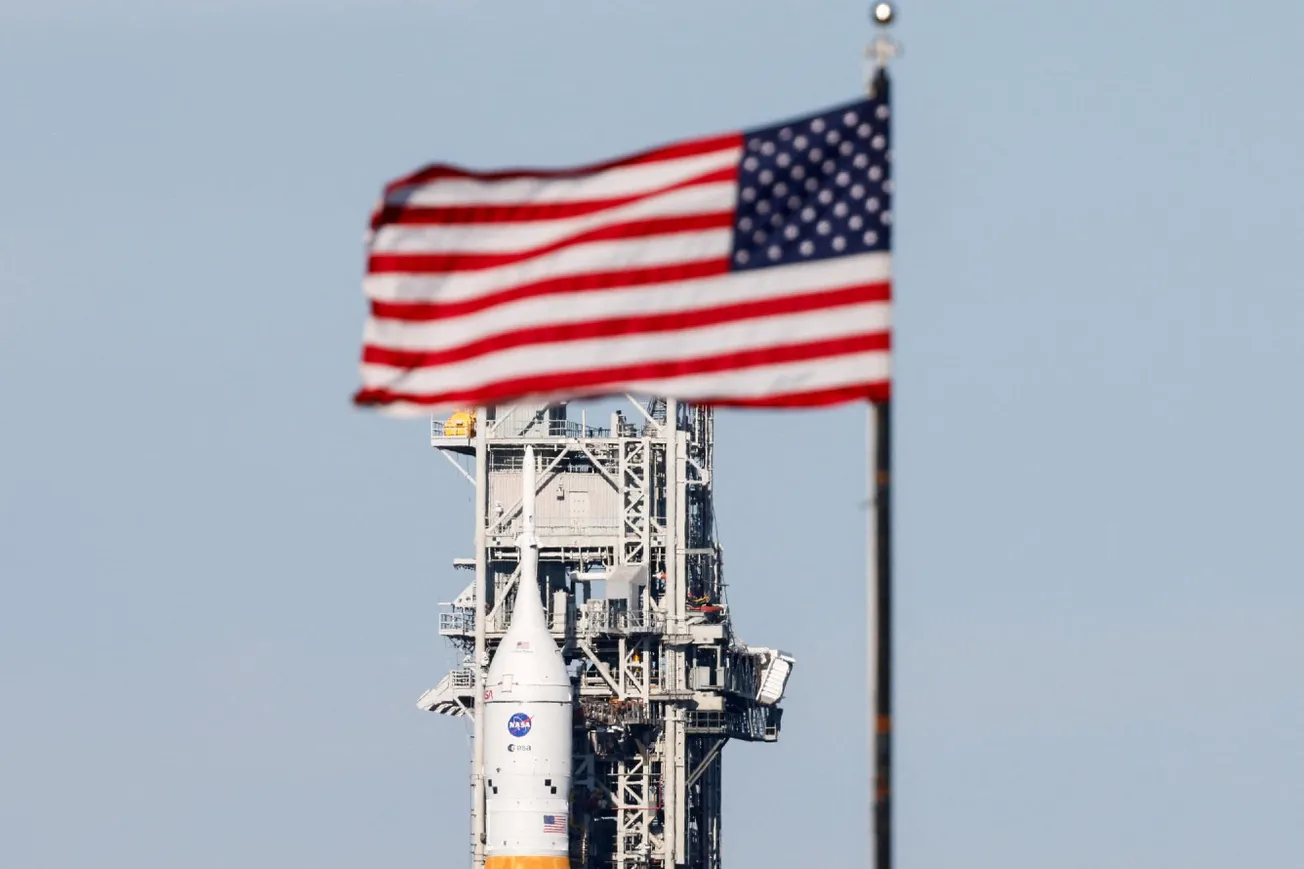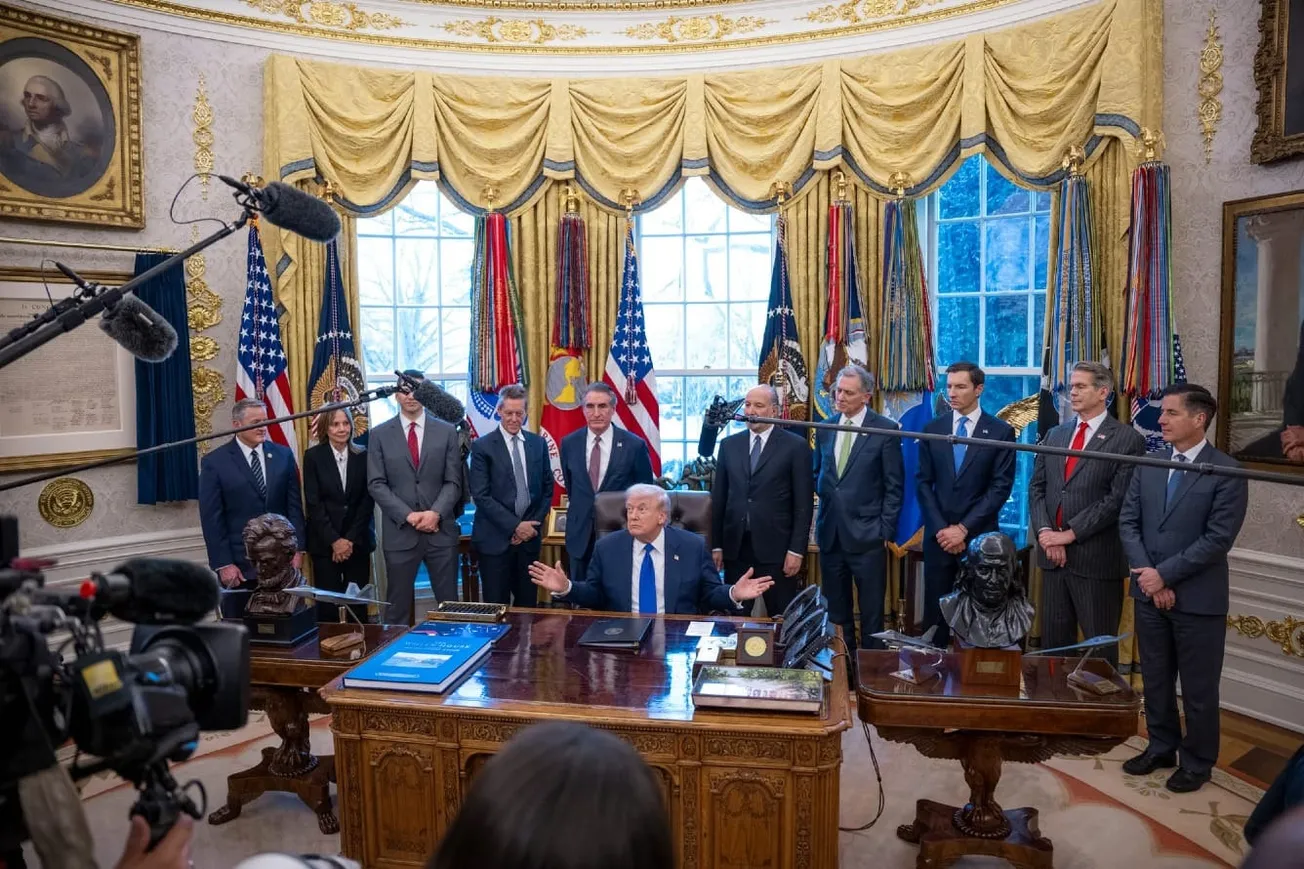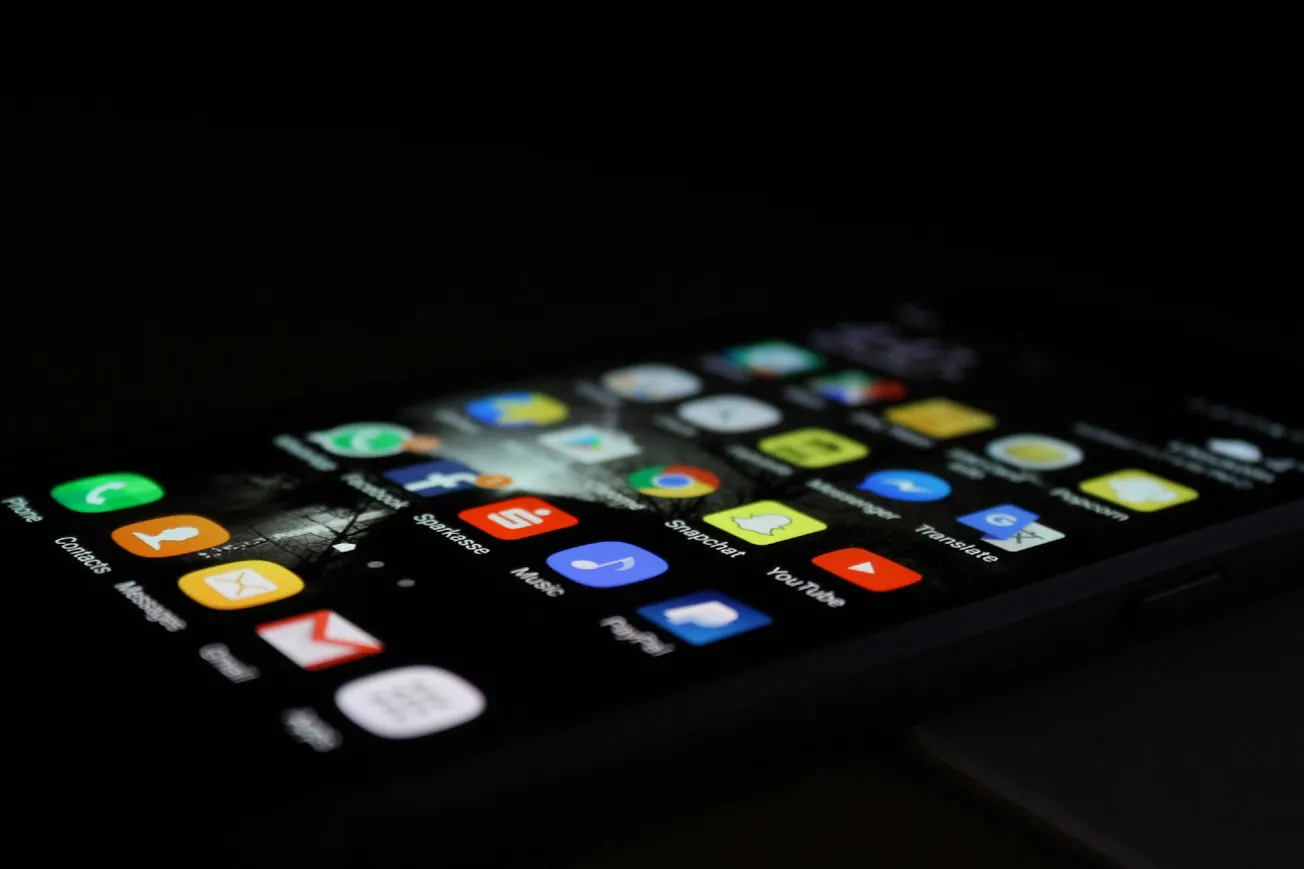The United States Department of Justice filed an antitrust lawsuit against Apple, one of the world's most renowned brands, alleging that the tech giant violated the Sherman Act.
The DOJ contends that Apple illegally maintains a smartphone monopoly by engaging in uncompetitive conduct by:
- Limiting cross-platform messaging
- Restricting smart watches not developed by Apple
- Blocking super apps
- Disallowing digital wallets
The government said in the lawsuit:
Each step in Apple's course of conduct built and reinforced the moat around its smartphone monopoly.
This is not the first time that the federal government's minions—who have zero experience running a private for-profit enterprise or even working in one—have pursued a rich tech company.
Assistant Attorney General Jonathan Kanter has focused on antitrust cases in both private and public practice. He began his career as an attorney for the Federal Trade Commission's Bureau of Competition, switched to private law practice to help defend firms against antitrust lawsuits, and switched back to a government role to pursue companies.
The Federal Trade Commission's courtroom presence has increased since the incumbent Chairperson, Lina Khan, took office. A diversity hire, she made a name for herself in academic circles when she wrote a seminal paper on antitrust matters at Yale Law School, arguing against Amazon's anticompetitive practices. Never having worked in the private sector, Khan has faced defeat after defeat in court. We noted how her lack of tech industry acumen in bringing frivolous cases set a dangerous precedent in case law that could prevent the government from pursuing genuine complaints of anticompetitive behavior.
Congress passed the first antitrust law, the Sherman Act, in 1890 as a "comprehensive charter of economic liberty aimed at preserving free and unfettered competition as the rule of trade."
On its face, the government's Apple complaint is without merit. The long-standing requirement for monopolization is both -
- the possession of monopoly power in the relevant market and
- the willful acquisition or maintenance of that power as distinguished from growth or development as a consequence of a superior product, business acumen, or historic accident.
In the strict legal sense, Apple is not even a monopoly. According to IDC, while Apple is the #1 smartphone shipper, it has a global market share of only 20.1%. Other brands, such as Samsung, Xiaomi, Transsion, and Vivo, account for more than three-quarters of all phones sold. Had the United States not banned the sale and import of Chinese brands Huawei and ZTE, Apple's share would have been even lower.
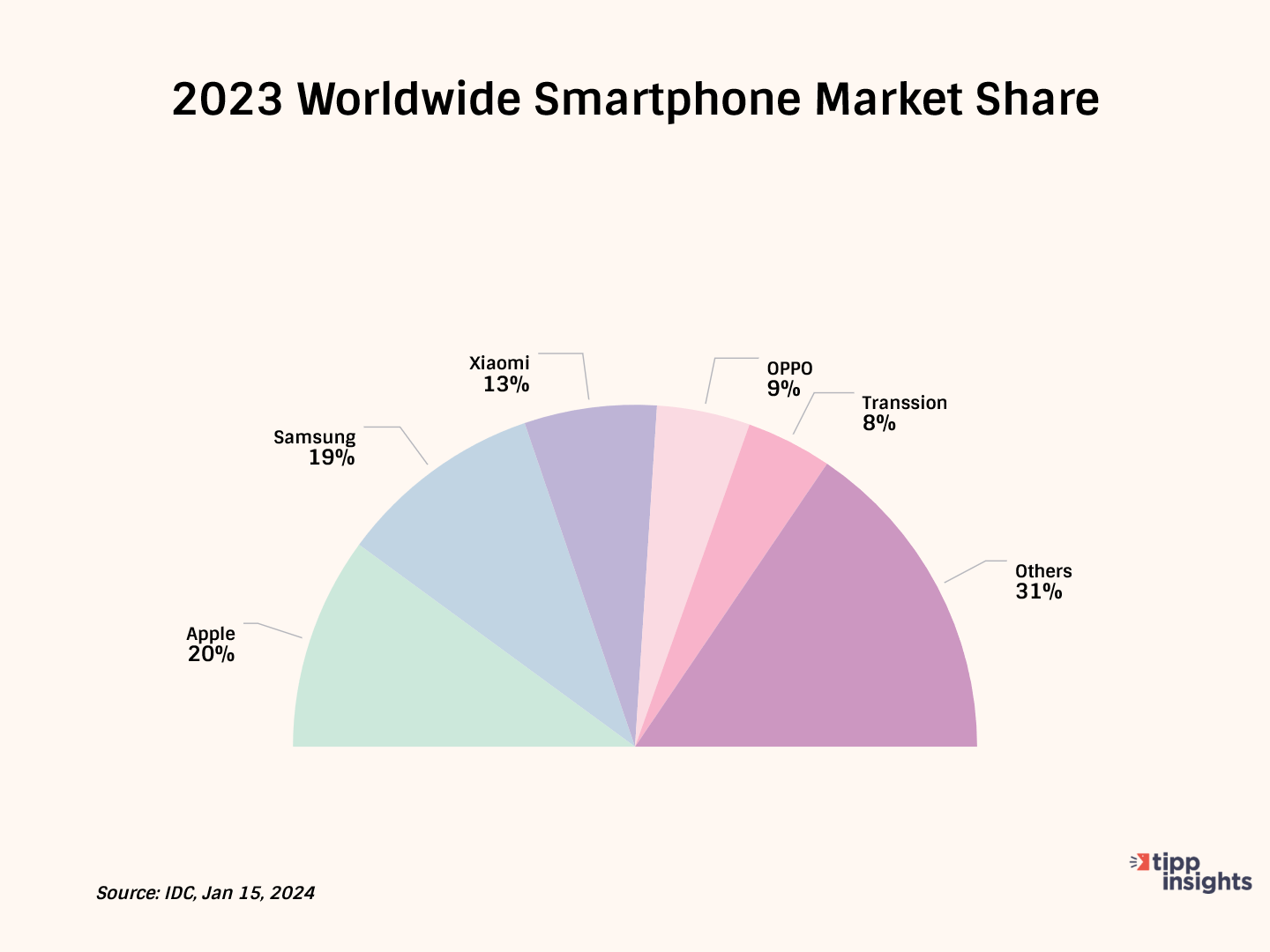
The government's complaint concerns Apple's operating system, iOS, the software that controls its iPhones and iPads. However, worldwide, Android is the dominant mobile platform. According to StatCounter, Android holds the largest market share, 70.77% globally, as of August 2023. iOS has a global market share of just 28.52%. StatCounter doesn't even consider Huawei's OS, Harmony, in its analysis. After the US Government forbade the distribution of the Android OS to Huawei's phones, Huawei developed its own mobile OS, which is now present in over 700 million phones in China, overtaking Apple's market position there.
Therefore, Apple is neither a monopoly nor a dominant player in the handset market or the Operating System domain. These facts are bound to come up when the case heads to trial.
The government's complaint targets the very heart of Apple's business model. When smartphones were first introduced, two vibrant business models competed with each other.
One, promoted by Google, gave away its Android OS practically for free to phone manufacturers worldwide, leaving the manufacturers to customize the user experience as they saw fit. The free giveaway rapidly increased Android's dominance as an operating system but cannibalized Google's own smartphone business. Google bought Motorola, struggled to deploy its phone brand, and remains far behind Samsung and other companies in the smartphone race.
The second model, promoted by Apple, was to tightly control the user experience on iPhones and affiliated devices. Apple designs every aspect in-house—the phone, the software, its numerous in-built apps, the chip, the electronics, the app store, and the various devices (Smartwatch, Airpods, iPads, Mac)—so that everything works seamlessly. In an increasingly dangerous world when phones are subject to sophisticated hacks, Apple's business model ensures that even the oldest phones, even those that have changed numerous hands, will automatically get the latest software updates to keep the phones safe. Phones sold with the Android OS do not share this feature as they are subject to the manufacturer's whims. Most manufacturers push OS updates only for a year and then stop, hoping that customers will return to them to buy newer models, leaving existing phones unprotected.
The government's lawsuit attacks Apple's business model, and the government is bound to lose in court. Apple, the most valuable company in market capitalization for years, is valued at nearly $2.75 trillion. It didn't get there by accident. It is so successful because it won in the marketplace of ideas and innovation - a classic example of capitalism working. Kanter and Khan, please note.
Apple said in a statement:
This lawsuit threatens who we are and the principles that set Apple products apart in fiercely competitive markets. If successful, it would hinder our ability to create the kind of technology people expect from Apple—where hardware, software, and services intersect. It would also set a dangerous precedent, empowering the government to take a heavy hand in designing people's technology.
Some of the government's complaints border on the petty. For example, the government says Apple "undermines" the ability of iPhone users to send iMessages to Android users. So what? Haven't DOJ lawyers ever used SMS or MMS messaging that works on all phones, even flip phones? If they don't want to use the POTS network to send messages, don't DOJ lawyers know that smartphone users can seamlessly send and receive messages on OS-neutral apps such as WhatsApp, Facebook Messenger, Telegram, and Snapchat? The lack of knowledge of technology in the lawsuit is mind-boggling.
The Biden administration has repeatedly shown itself to be incompetent. The DOJ lawsuit against Apple is one more example and will likely be tossed out in the courts.

